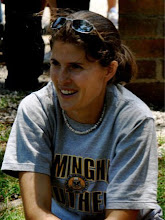
We have a patient at the clinic named don José. He's not wearing his trademark hunter orange cap or his mischievous grin in this picture, but you can at least see is face. Don Jose is in his early 80s and, since a couple of major surgeries he had about a year ago, he’s been close to the heart of everyone at
The problem, however, is that if your condition is not emergent, it’s difficult for it to become a priority. So, for the past few months, don Jose has been attending sporadic doctors appointments and hospital visits, jumping through the necessary hoops to get his surgery scheduled. It’s been a frustrating process, especially learning which lines to wait in, whom to ask what questions, and then which line to wait in next. Often, even after a few hours of this process, you might still leave the hospital with a “Your appointment will be next week” or “Come back in two weeks to schedule the surgery. There are no rooms available right now.” And I imagine that if I, unfamiliar with the language and process as I am, am frustrated with and confused by the inefficient process of bouncing from line to line like a pinball, it must be incredibly overwhelming for someone without much exposure to or education of the health care environment.
Yet, the perseverance, the patience – perhaps it’s submission engrained by years of disappointment and being told to wait – I see in everyday people inspires me. Granted, there are those who jump to the front of the line, who gripe and complain. But there are also those who, after getting to the hospital at 5 am, leave at noon without the appointment they hoped for. And then they come back and do it again.
It’s pretty sad. And the system of having to ask all the questions and make all the appropriate arrangements yourself doesn’t work. But I’ve learned a lot by watching the people waiting with me. They shouldn’t have to wait, look confused as they’re brushed off as some other department’s responsibility, and then come back for another round the next day. But they wait patiently. And they come back. And so, in my relatively painless bouts of waiting a couple of hours for the doctor or getting up the nerve to call him day after day to see if he was able to get a surgery date for don José yet, I thought about those faces.
And it reminded me of Jesus’s parable about the woman continuing to ask the judge or the neighbor who refused to stop knocking until his friend gave him some bread. I didn’t want to be a pestering bother, but I couldn’t stop knocking, couldn’t stop asking. I think perseverance is definitely a lesson in humility. But it’s also hopeful. Because we have a Savior who wants to help us, who waits for our knock, our call, our request. Sure, it might still require perseverance and patience. It might not happen in the timeline we think it should. But if even the stern judge, the reluctant neighbor, and the busy ENT surgeon finally give in to a persistent request, won’t our Father who loves us be so much more ready to do the same?
I hope you have a beautiful Easter.




